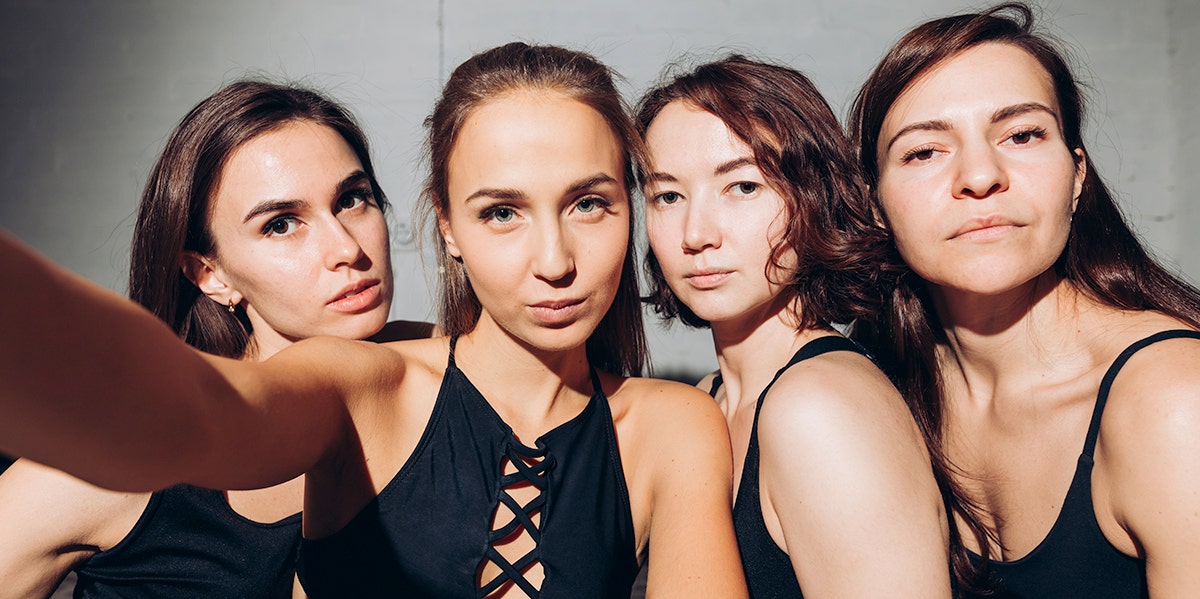White People: Cutting Off People Who Aren't 'Woke' Enough For You Only Creates More Work For BIPOC
True allyship lies in conversations with educating those who are ignorant, not ostracizing them.
 UfaBizPhoto / Shutterstock
UfaBizPhoto / Shutterstock As a Black person, it’s always interesting to hear the definition of allyship when speaking to a non-Black individual. More often than not, their answers lie between posting things on their Instagram stories to marching in protests.
While those are all steps toward standing with BIPOC, they feel a little too easy.
There needs to be a conversation about educating those less 'woke' than you — especially for non-Black allys when talking to families and friends who spew racist ideas.
It seems as if the default for white allys has been to shun/ignore other white people around them who are overtly racist.
While that might seem like the right thing to do in proving how anti-racist you are, let me make this clear: avoiding having conversations about race with other white people in which there is an opportunity to educate, is not activism or allyship.
In fact, avoiding these difficult conversations by "cutting someone off" is only further perpetuating white privilege. Because you’re not directly affected by the grasp of racism, not speaking up when something racist is said is a prime example of your white privilege.
In fact, your white privilege is the reason why you should be speaking up — because often BIPOC can't.
It is not Black people’s job to fix this system — we shouldn’t have to be constantly thinking about how to put an end to racism. It’s not our job to have conversations and educate with other white people on your behalf. We’ve been doing that for the last four centuries.
It was not our ancestors that decided all those years ago to enslave Africans. It wasn’t our ancestors who created Jim Crow. It wasn’t Black people who decided our bodies should be regarded as the lesser of all races.
Marie Beecham (@mariebeech) on Instagram posted an amazing thread about being tolerant of people not intolerant.
She wrote: “It seems to me that [white allys] are more concerned with self-righteousness and setting yourself apart as “one of the good ones” than you are with justice.”
Which is absolutely true. Allyship is more than announcing that you’re not racist and then sitting back down and staying quiet when you witness racism in action. Every white person has internalized racism that needs to be actively addressed.
Saying “I am not racist,” is about as good as a slap in the face to every Black person. Back it up with action, because at the end of the day, those phrases mean absolutely nothing to the Black community.
I understand that having conversations about systematic racism and finding ways to dismantle it is difficult. But it's necessary. Opting to ignore people around them when they’re being outright ignorant or racist is the easy way out — and completely counterproductive to helping BIPOC.
Because let's remember:
Race was a concept created by white people, racism is a direct result of that conceptualization of race — which is a wihte person’s problem. BIPOC are the unfortunate ones who reap the consequences of racism.
In this day and age when there are so many Instagram graphics that outline the best films, books, and podcasts to unpack all of that internalized racism and to be a better ally — there is no excuse to fall flat. Everything has been laid out — by BIPOC no less — something we didn’t have to do. We shouldn’t have to hold your hand and guide you through our pain.
It’s frustrating that everyday Black people have to go out into the world and try to survive a circumstance that whiteness crafted. We are too busy not trying to let the system swallow us whole that we simply do not have time to try and give white people our sympathy or free education when they struggle with their activism.
It feels alienating and downright uncomfortable when BIPOC have to step up and try to educate. Especially when we’re talking about our own experiences while living in this country.
Being a good ally doesn’t mean going to your BIPOC friends and asking them for help. It doesn’t mean ignoring problems of race when they are brought up. Being a good ally means finding it within yourself to constantly confront ideas of racism and to have those difficult conversations.
Because trust me: it's easier and safer for you to have those conversations than us.
Nia Tipton is a writer living in Chicago. She covers pop culture, social justice issues, and trending topics. Follow her on Instagram.
